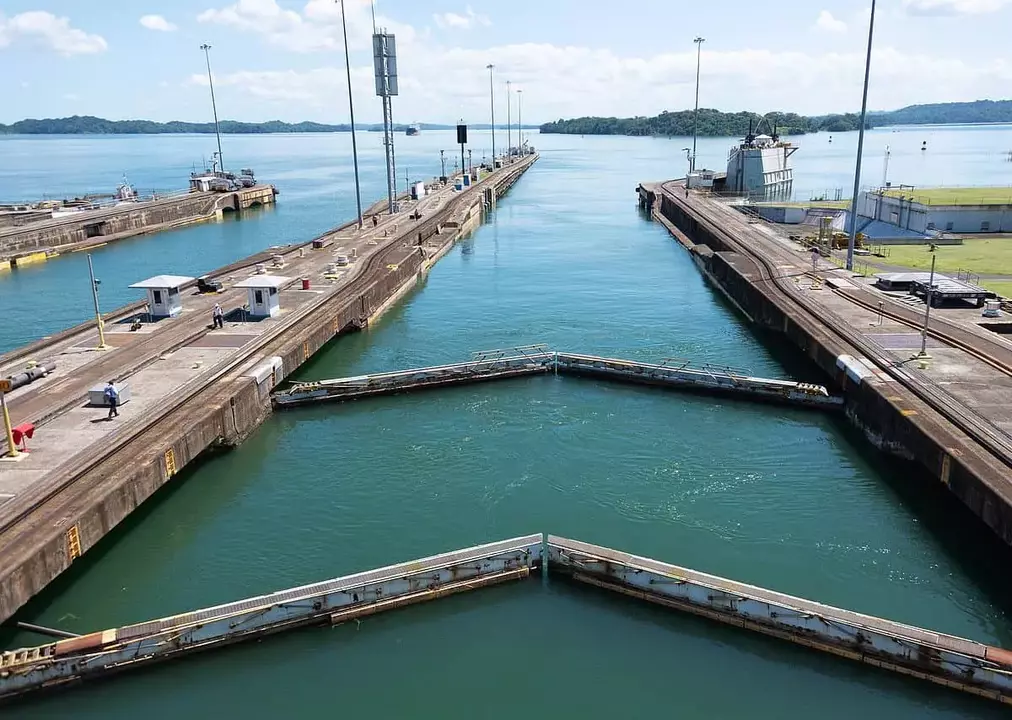Introduction to the Panama Canal Controversy
The Panama Canal, a vital waterway connecting the Atlantic and Pacific Oceans, has been at the center of a longstanding controversy involving the United States, particularly under the presidency of Donald Trump. The canal, which is considered a crucial component of global trade, has been a point of contention due to its strategic importance and the potential for economic and political leverage. In this article, we will delve into the history of the Panama Canal, the reasons behind Trump’s desire to regain control, and the implications of such a move on the maritime industry.
The Panama Canal, a crucial waterway linking the Atlantic and Pacific Oceans, has been the subject of an ongoing controversy, particularly during Donald Trump’s presidency. The canal, a vital component of global trade, has been a source of contention due to its strategic importance and the potential for economic and political leverage. This article will explore the history of the Panama Canal, the reasons behind Trump’s desire to regain control, and the implications for the maritime industry.
History of the Panama Canal
The Panama Canal, completed in 1914, was built by the United States at a cost of over $350 million. Initially controlled by the United States, the canal’s ownership was transferred to Panama by the end of 1999 through the Torrijos-Carter Treaties signed in 1977. Since then, the Panama Canal Authority has managed the canal’s operations. The canal spans approximately 50 miles, allowing ships to bypass the lengthy route around South America, saving time, fuel, and resources
Trump’s Desire to Regain Control
In recent years, Trump has expressed his desire to regain control of the Panama Canal, citing its importance to the United States’ economy and national security. However, the Panamanian government has rejected Trump’s demands, stating that the canal is not for sale and that Panama will not be intimidated by Trump’s threats. The controversy has sparked a heated debate, with some arguing that Trump’s actions are a form of “reckless stupidity”
Implications for the Maritime Industry
The Panama Canal is a critical component of global trade, with over 14,000 vessels passing through the canal every year. Any changes to the canal’s operation or ownership could have significant implications for the maritime industry. If the United States were to regain control of the canal, it could potentially lead to increased tolls and fees for ships passing through the canal, which could have a negative impact on the global economy. Additionally, the controversy surrounding the canal has already led to increased tensions between the United States and Panama, which could have broader implications for regional trade and diplomacy
Conclusion
The controversy surrounding the Panama Canal is a complex and multifaceted issue, with significant implications for the maritime industry and global trade. While Trump’s desire to regain control of the canal is driven by a desire to protect American interests, it is unclear whether such a move would be beneficial for the global economy or the maritime industry as a whole. As the situation continues to unfold, it is essential to monitor developments and consider the potential consequences of any changes to the canal’s operation or ownership. The Panama Canal remains a vital component of global trade, and any changes to its status could have far-reaching implications for the maritime industry and beyond.
Sources:
- Explainer: What is the Panama Canal and why has Trump …
- What’s the history of the Panama Canal, and why is Trump …
- The Panama Canal Controversy – Wikisource, the free online library
- The Panama Canal: Riots, Treaties, Elections, and a little …
- A history of the Panama Canal — and why the US can’t just take …
- Trump threatens to try and regain control of Panama Canal
- Panama Canal – Wikipedia
- Why is Trump threatening to take over the Panama Canal?
- Panama Canal Controversy and Its 75 Year History: Some ‘Questions …
- Trump’s ‘Panama Canal Takeover’ Threat Sparks … – EconoTimes
- Trump’s proposal to reclaim Panama’s canal sparks controversy – The Hill
- Donald Trump and Panama trade blows over control of canal
- ‘Repurchasing’ the Panama Canal is impossible – The Hill
- Setting the Record Straight About the Panama Canal
- In Pursuing Canal, Trump Could Push Panama Closer to China – The New …


Leave a Reply